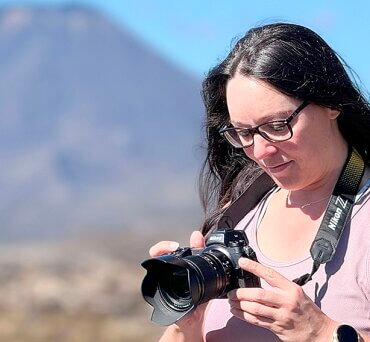
Janine Krippner
Eons ago, humanity began to learn from natural events and understand our Earth in incredible ways. We evolved through tragedies like impactful eruptions and earthquakes. Valuable stories were passed down to teach descendants how to recognise warning signs and how to act, preserving records of disaster through time.

Janine Krippner
Through exploration and early science, we got curious about our planet and started asking bigger and better questions, a driver of knowledge.
In the past few centuries there have been enormous growth spurts in understanding how our world works and what we can do to be less impacted by disasters and recover more effectively.
Organisations like volcano observatories and emergency management agencies grew, ensuring we have people dedicated to understanding the complexities of hazards, disasters, and society. We even began to work together, joining with fields like engineering and social sciences, and learned the necessity of working alongside utilities and governments organisations. Hard-won lessons have fuelled progress through the Earth sciences and studying the human aspects of how we react, how we are impacted, what our needs are, and examining how have we made these situations better or worse.
We now understand the importance of all aspects of Reduction (know what our risks are and take action to reduce how they will harm us), Readiness (having systems and services in place), Response (jumping into action when an event happens), and Recovery (immediate, medium, and long-term).
We slowly move from just telling people what to do during an event, to empowering people to protect and care for themselves. We just don’t have the resources to attend to everyone when disaster strikes.
Unfortunately, we also take many steps backwards. Financial gain is put ahead of protecting our people. Funding for important programmes and research is cut. We don’t take the ongoing time needed to make sure relationships are in place before we need them.
Vulnerable people and those who have different, valuable cultural views are left out of discussions and planning. Trust in science and governments is eroded.
Technology grows by leaps and bounds and creates more problems to solve, like what happens when the internet goes down during a large earthquake when we now depend on it?
Progress requires working together. We know that stronger and better-connected communities hit with disaster are so much stronger. Experts need to work more within our communities, not just publish research papers that most people can’t access, in a language full of jargon. We need to better include and respect the magnificent diversity of humanity.
This entire process is just that – a messy, complex, evolving process that continues to improve. There will be the “unprecedented” events that leave us with our jaws on the floor, and there will be new discoveries. We don’t have all the answers yet and we certainly do not have the means to implement what valuable lessons we have already learned.
My hope is that the future sees all of us working together so that when, not if, disaster strikes, we are ready. This can be through increasing our personal knowledge, knowing what to do, having clear but flexible plans, taking action, and being there for our neighbours.
We live on a very active planet, but we are not powerless.

Janine Krippner checks her camera settings while on volcano watch. Photo: Drew Mehrtens.








